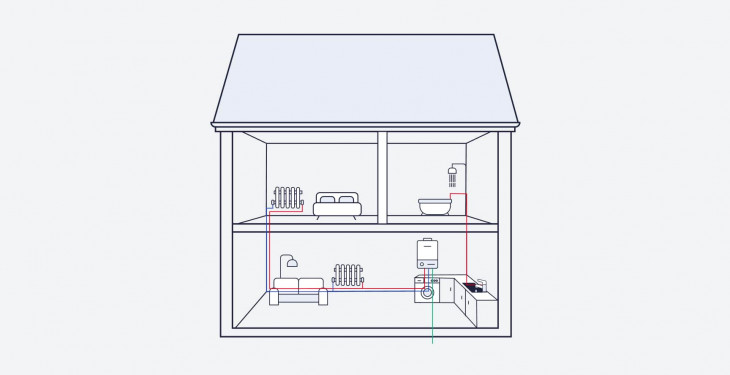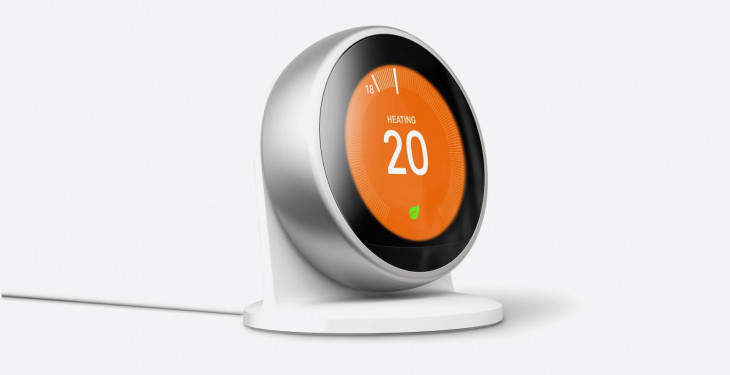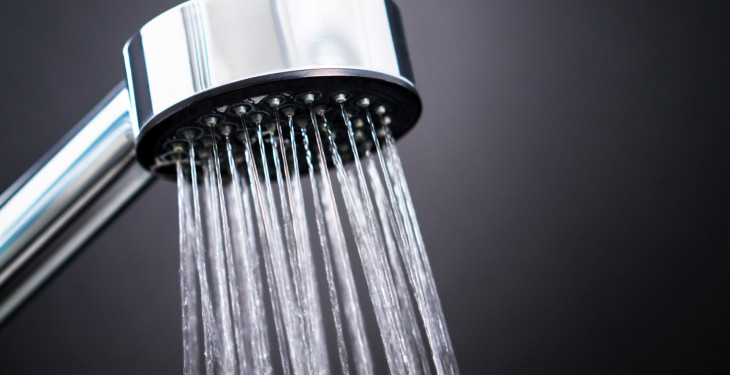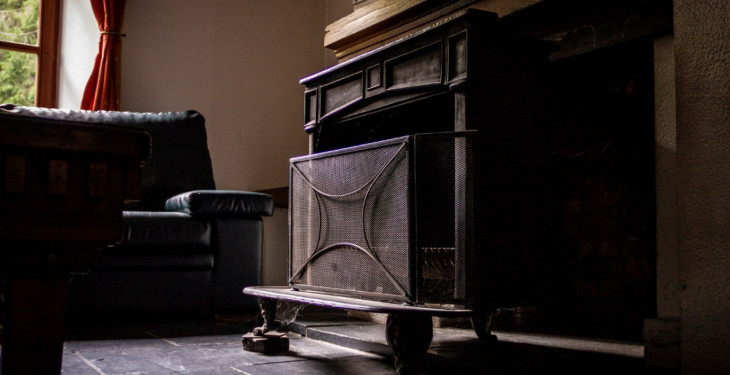

Written by Stephen Day
Gas Safe Engineer
Updated: 5th February, 2026
Combi boilers are by far the most popular type of home heating system in the UK, and with good reason, providing many benefits to their owner and the properties they heat. A versatile boiler, combis are suited to many types of home, however, maybe not all types.
Get a new boiler quote, save up to £550 per year (0% APR available).
In this blog we’re going to be exploring some of the many pros and some of the lesser known cons of a combi boiler.
Before we dive into the complexities of combis, if you aren’t completely sure what one is, don’t worry, allow us to explain.
A combi boiler is a type of domestic boiler that ‘combines’ a home’s central heating and hot water production into one succinct unit.
A combi takes water directly from the mains and heats it upon usage. After detecting a hot water request, the combi begins to burn gas in a combustion chamber.
The hot gases rise and move through a series of pipes and into a component called a heat exchanger, the hot gas running through the exchanger then heats the surrounding cold water.
In a conventional boiler system, this process is done according to a programme and the water is stored in a separate cylinder until it’s needed.
A combi only starts this cycle upon request (initiating the heating or turning on a hot water outlet), therefore the hot water is almost instant.

As mentioned, modern combis are an extremely popular type of boiler, this is down to their myriad of benefits, including:
Most modern combi boilers are extremely efficient in their heating of a property, with ErP ratings of ‘A’ and 90% conversion efficiencies, meaning hardly any energy used to produce heat is wasted.
Age of Boiler | Efficiency Percentage | Efficiency Rating (ErP) |
0+ Years | 90% + | A |
10+ Years | 85% + | B/C |
15+ Years | 80% + | C/D |
20+ Years | 70% + | E/F |
25+ Years | 60% + | G |
The direct correlation between a boiler's age and its efficiency is clear to see in the newer systems’ ErP.
Due to the compact casing and combined dual functionality of a combi boiler, essentially they perform the job of two appliances (conventional boiler and water storage tank), while occupying minimal storage space.
Most combis are small enough in dimension to fit easily into a standard kitchen cupboard, meaning they never detract from the decor or purpose of an internal space.
Combi boilers take their water supply directly from the mains, this means the water circulating through the home’s central heating system retains a lot of the substantial flow pressure .
A conventional boiler often relies on gravity to collect water, whereas a combi’s flow is much stronger and reduces the likelihood of water becoming stuck or ‘pooling’ in curved pipes due to the extra force behind the flow.
A combi boiler can produce instantaneous hot water, which is obviously beneficial for any property.
Any Home with multiple bathrooms and an old, inefficient heating system may have to accommodate slower water heating speeds, increasing energy wastage, and as a result, energy bills.
Due to their modernity and consumer convenience based design, many combis can be synced with and remotely controlled by technology, such as smart thermostats or apps via a smartphone or tablet.
This convenience in being able to wirelessly control your property’s temperature is game changing for homeowners, with some apps even being able to detect component faults and automatically notify an engineer.

Water produced from new combi boilers is clean and safe to drink, as it hasn’t been stored in a tank for any amount of time. This reduces the potential of sludge, rust or debris build up contaminating the water supply for a home.
Gas is among the most cost effective types of fuel for a heating system, coming in at almost three times cheaper than electricity as an operating fuel.
This indicates once the boiler unit and installation has been paid for, the boiler’s efficiency and low cost fuel will start to pay for itself in money saved much faster than you’d think!
Due to their popularity, combi boilers and their replacement parts are very prevalent. This means even if your combi has a problem, their superior availability ensures that there is always an abundance of replacement components that are cheap and easy to source.
Most modern combis have been designed with operational volume in mind, often excelling in minimising any sound output, with most top of the line boilers being silent when switched on.
Premium boiler brands often receive Quiet Mark awards for their success in acoustical consideration and volume reduction.
Many combi boilers can run on a variety of fuels, gas being the most popular, and can even operate on mains gas or LPG.
While a combi boiler can be beneficial illustrated in the ways as mentioned above, they may not be practical for all households.
Due to their reliance upon the mains water supply, combis as mentioned carry forth the level of water pressure from this connection. If the mains to a home has a particularly low water pressure, this means the boiler will operate at a much less efficient level, with slow flow rates and sub-optimal pressure.
In most cases if your property relies on a combi boiler for its hot water production, you will not be able to install and use a power shower due to them requiring a boiler pump, a component a combi is not compatible with.

Certain property types like larger homes or homes with several bathrooms may not be suited to a combi boiler due to their high water demand.
In this instance a modern and efficient system or conventional boiler may be more suited due to its ability to serve numerous water outlets at one time.
As with any boiler type, the unit cost and installation rate for a new combi will be manufacturer and merchant dependent.
Installation Type | Price (inc VAT) | |
Combi to combi swap | £1,845 | |
System to combi conversion | £2,499 | |
New boiler install | £2,899 | |
Back boiler to a combi | £3,299 |
As a general rule of thumb, any boiler 15 years or older should be replaced. In the time elapsed since the boilers installation the constant advancement in modern technology means upgrading to a newer boiler will work out more efficient, cheaper and safer.
Any boiler with signs of serious degradation, function failure or that has been ‘condemned’ by an expert heating engineer must be immediately disconnected and replaced for safety reasons as well as heating convenience.
An old, inefficient back boiler can actually be converted to either a combi or system boiler, systems can work out cheaper in terms of the conversion due to a lot of the pipework remaining the same.
However, most people opt for the combi conversion as an upgrading of the entire system could be more efficient in the long run, and may ensure less future faults, reducing repair or maintenance costs.
Secondly, you will need to decide upon the new flue placement of a combi for example, you could keep the same vertical flue position, releasing gases out of the chimney or move it due to the fact combis can operate with a vertical or horizontal flue.
Thanks to the compact design of modern combi boilers, they can be positioned into smaller spaces like a standard kitchen cupboard, or they can be placed in the same spot as the boiler being removed (if you want your boiler moved to a new location there will be additional fees, especially if there is no piping in this area).
The fire will need to be removed, followed by the old boiler, flue, tanks and all relevant piping will be re-routed or installed. Post new boiler installation any area repairs to surrounding walls or where the fire previously was will need carrying out and safety checking.

Each combi boiler install is a unique case and therefore any time indication is intended as a rough guide only.
For a combi to combi swap we advise to allow for up to 1 full day and for a conversion from a different type of boiler to a combi, we advise to allow for up to 2 full days.
A combi boiler is a versatile appliance that can be installed in several different locations around the property.
Combi boilers are extremely space economic and as mentioned above the most popular place for a combi is in a kitchen or utility cupboard.
Providing the property has suitable insulation amongst other things, a combi can also be stored in a loft or garage.
Other common housing places for a combi boiler include the utility room, bedroom or a basement.
While there are some cons to owning a combi if you occupy a very large property with several bathrooms, in the vast majority of cases a modern combi boiler will be extremely advantageous.
Not only will a combi perfectly heat your home, but it will also start to save you money due to its efficient performance ensuring you will be less frivolous when it comes to heating bills.
Combi boilers are manufactured by the most trusted and celebrated heating brands and are available in a range of kW sizes, meaning you never have to sacrifice on home heating, no matter your budget or heating demands.
Current iHeat Combi Boiler Brands:
If you think a modern, efficient combi heating system is ideal for your home, contact us today for a Gas Safe registered installation as fast as the next day!
Get a quote in 60 seconds, fitted as fast as next day!
0% APR finance available.
Last updated: 5th February, 2026

Written by Stephen Day
Gas Safe Engineer at iHeat
Stephen Day is a Gas Safe registered and FGAS certified engineer with over 20 years of hands-on experience in the heating, cooling, and renewable energy industry, specialising in boiler installations, air conditioning, and heat pump systems.
LinkedInArticles by Stephen Day are reviewed by iHeat’s technical team to ensure accuracy and reliability.

27th February, 2026
Condensing boilers are considered to be some of the most efficient boilers out there on th...
 Read Article
Read Article

26th February, 2026
Vaillant boilers use a variety of parts to ensure efficient operation. This section looks...
 Read Article
Read Article

26th February, 2026
Leaving the heating on low all day might seem like a way to avoid the chill without bursti...
 Read Article
Read Article
No obligation. Takes less than 60 seconds.